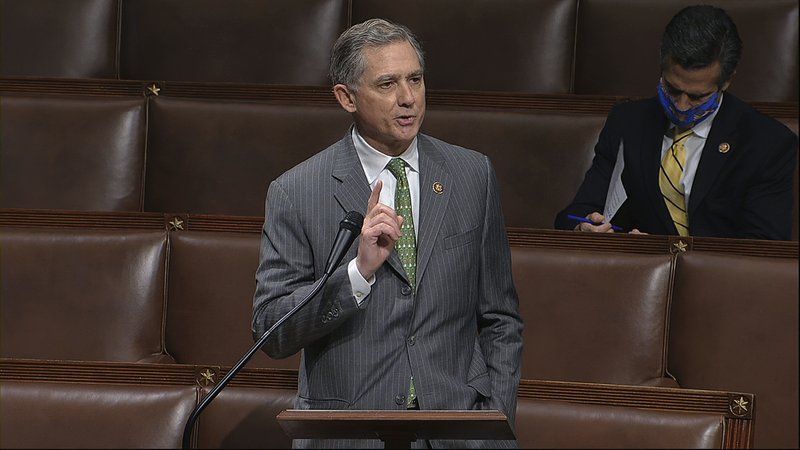WASHINGTON -- A new federally-backed loan program for midsize businesses hasn't attracted many borrowers, members of the Congressional Oversight Commission were told Friday.
As of Tuesday, the Main Street Lending Program had approved 18 loans totaling $109.5 million, according to the Federal Reserve Bank of Boston, which has spearheaded the effort.
Another 36 loans, totaling $421.4 million, were also under review, bank officials said.
In his opening statement, U.S. Rep. French Hill, R-Ark., said he hoped to learn "why it took three months to stand up the program and what, if anything, needs to be done to alter the program to expand the universe of eligible borrowers."
[CORONAVIRUS: Click here for our complete coverage » arkansasonline.com/coronavirus]
Federal Reserve Bank of Boston's President and CEO Eric S. Rosengren said it's "inherently difficult" to quickly scale up a program of this type.
The program's "modest initial numbers seem to be giving way to more uptake as participants and banks become more familiar with the program," he said.
Covid-19, in addition to threatening public health, has also unleashed "an unprecedented shock to our economy," he said.
"The eventual size of the program will be determined by the path of the pandemic and the economy. Should conditions worsen, which we hope does not happen, I'd expect interest to expand more rapidly," he said.
Launched by the Federal Reserve, the program was backed by a $75 billion equity investment from the U.S. Treasury Department, funding made possible by the Coronavirus Aid, Relief, and Economic Security Act, which passed March 27.
When the program was announced in April, officials said it would have a lending capacity of up to $600 billion.
Officials had to establish who would qualify for the loans and how they would be repaid.
Borrowers must have 15,000 or fewer employees or they must have revenue of $5 billion or less.
Loans can range from $250,000 to $300 million and must be repaid within five years.
In mid-June, the bank began registering lenders to participate in the program. On July 6, it announced that the program was "fully operational."
Thus far, 509 lending institutions have registered to participate.
Of the 86 banks headquartered in Arkansas, only two -- Arvest Bank and Generations Bank -- have signed up, Hill noted. At least six others who do business in the state have also registered.
Bharat Ramamurti, one of two Democrats on the commission, criticized the pace of the roll out.
"While all this money has been sitting on the sidelines, tens of thousands of businesses have permanently closed and millions of Americans have lost their jobs. By any measure, the Main Street Program has been a failure," he said.
It's important, he said, to figure out how to fix the program, "before more Americans lose their jobs and more good businesses have to shut their doors."
Another commissioner, U.S. Sen. Pat Toomey, R-Pa., noted that the program was still in its infancy.
"My own view is it's way premature to come to the conclusion that this all has been a failure. I think there are definitely some improvements that we ought to be looking at," he said.
The slow roll out was unsurprising, he suggested.
"Let's keep in mind, it took a long time to get this up and running. That was always going to be the case because of the nature of the complexity of doing this kind of lending," he said. "There has been an acceleration in use. If the acceleration continues we may see significant pickup."
After Friday's hearing, Hill said tweaks to the lending effort may be necessary.
"The program is now functioning. I think the program is well designed for many," he said. "I remain concerned that there are solvent, temporarily-distressed companies that can't borrow on a cash-flow basis."
The hospitality industry is "not very well covered" by the existing Main Street Lending Program terms, Hill said.
